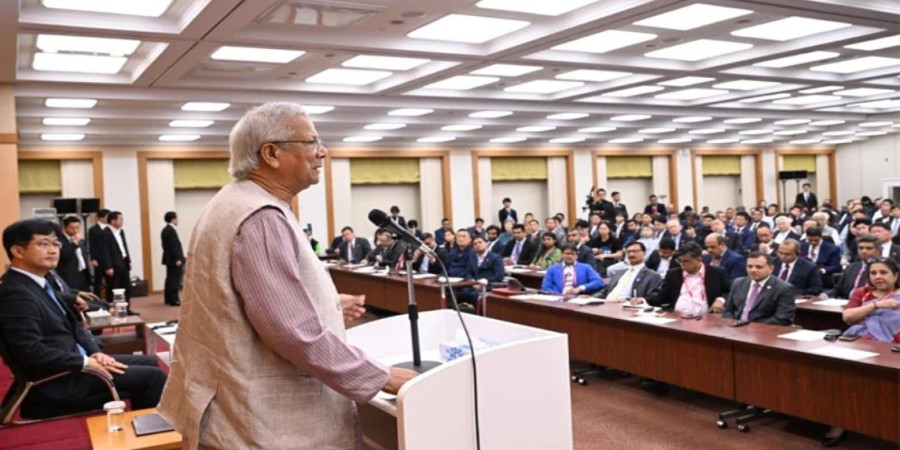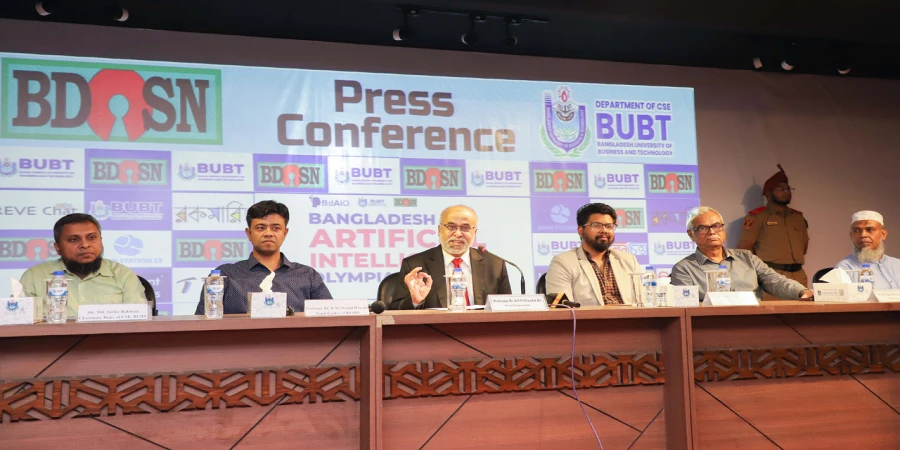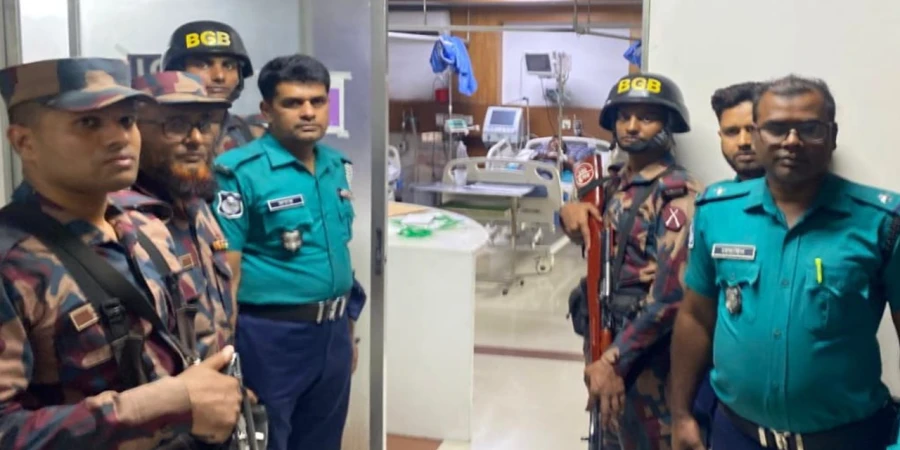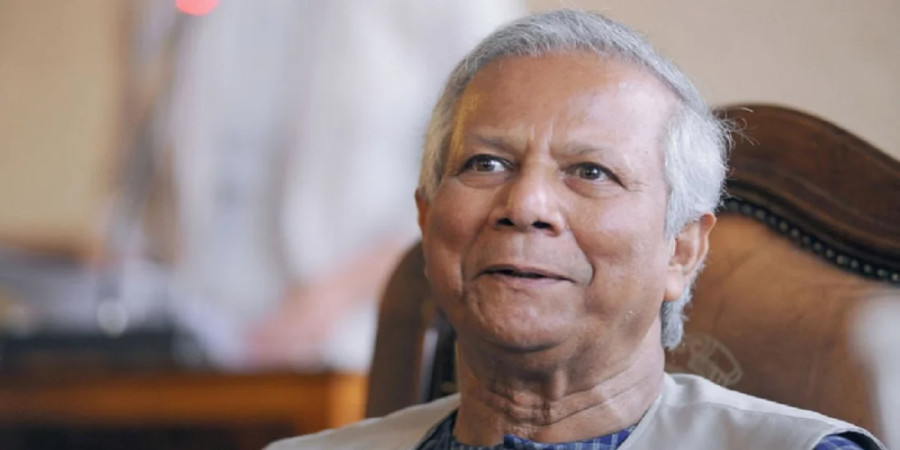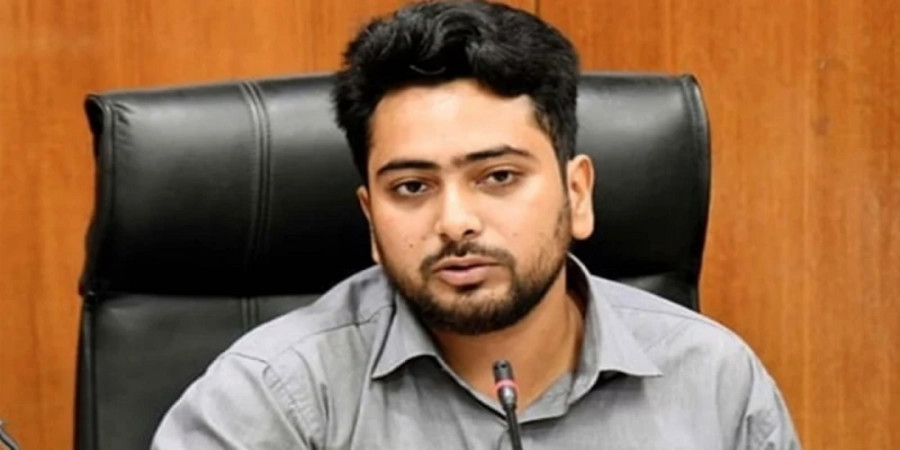
ছবি: Nahid Islam (Old Photo)
Bangladesh has strongly responded to India’s concern regarding the arrest of Chinmoy Krishna Das, the spokesperson for the Combined Sanatan Jagaran Jote and former leader of ISKCON, following his involvement in a sedition case. Nahid Islam, the Advisor to the Ministry of Information and Broadcasting, criticized India’s statement, calling it an "unauthorized interference" in Bangladesh’s internal matters. He urged India to focus on ensuring the safety and rights of its own minority communities instead of making inflammatory remarks that could escalate tensions.
On Wednesday (November 27), in a live interview with BBC Bengali, Nahid Islam commented on India’s recent reaction to the arrest of Chinmoy Krishna Das, saying, “This kind of statement is an unauthorized practice by India. They are attempting to exacerbate the situation. India should concentrate on safeguarding the rights and security of its minority communities within its borders.”
Background of the Arrest
The arrest of Chinmoy Krishna Das followed the raising of a religious flag by his group at a public rally in Chittagong on October 25, during which a saffron ISKCON flag was hoisted over the national flag. This event sparked controversy and criticism across Bangladesh, especially after accusations of disrespecting the national flag were made. A sedition case was filed against Das by BNP leader Firoz Khan, and he was later arrested on November 25 from Dhaka’s Hazrat Shahjalal International Airport.
Following his arrest, Chinmoy was brought to Chittagong, where on November 26, he was presented in court and sent to jail. During the court proceedings, his supporters gathered in large numbers outside the courthouse, clashing with law enforcement. In the chaos, a state attorney, Advocate Saiful Islam Alif, was fatally stabbed, further complicating the situation.
In response to the arrest and the ensuing unrest, India’s Ministry of External Affairs issued a statement expressing concern over the detention and denial of bail for Chinmoy Krishna Das. India highlighted the ongoing issues faced by Hindus and other minority groups in Bangladesh, referring to several incidents of violence against them, including attacks on temples, homes, and businesses. The Indian government called for the protection of peaceful demonstrations and urged Bangladesh to respect the freedom of expression and assembly for its minorities.
Bangladesh Responds to India's Statement
Bangladesh’s Ministry of Foreign Affairs issued a strong statement in response to India’s concerns, expressing disappointment and deep dissatisfaction. The statement emphasized that the arrest of Chinmoy Krishna Das was based on specific legal charges and that any claims of misrepresentation or undue influence were unfounded. The Bangladesh government also noted that such statements from India not only misrepresented the facts but also went against the spirit of friendly relations between the two neighboring countries.
The statement read, "We are deeply disappointed and saddened by the statement issued by India’s Ministry of External Affairs regarding an internal matter in Bangladesh. The allegations made in the statement are baseless and misrepresent the truth, undermining the spirit of cooperation and mutual understanding between the two nations.”
The Bangladesh government stressed that the country’s judicial system is fully independent and that there was no interference from the government in the case. They reiterated that every Bangladeshi citizen, regardless of their religion, has the right to practice their religion, express their opinions, and peacefully assemble. The government’s commitment to ensuring the safety and security of religious minorities, especially Hindus, was reaffirmed, referencing the peaceful celebration of Durga Puja last month as proof of this dedication.
Bangladesh’s Commitment to Communal Harmony
The statement further clarified that Bangladesh is committed to maintaining communal harmony and peace among all its religious communities. The government expressed deep concern over the brutal killing of Advocate Saiful Islam Alif in Chittagong and vowed to ensure that religious tensions in the region would not escalate. To that end, security measures have been strengthened in Chittagong to maintain peace and order.
"Bangladesh is committed to maintaining religious harmony, and we assure all our citizens, regardless of their religious identity, that their right to freely practice their religion is guaranteed. We are fully determined to ensure the safety of our religious minorities and will take all necessary actions to maintain peace and security in the country," the Ministry of Foreign Affairs added.
The Foreign Ministry also rejected India’s claim that the peaceful protestors supporting Chinmoy Krishna Das had been unjustly attacked. It emphasized that the right to peaceful protest in Bangladesh is constitutionally protected and that the government was committed to upholding this right for all its citizens.
The Broader Context of Tensions
The arrest of Chinmoy Krishna Das and the subsequent violence, including the tragic murder of Advocate Saiful Islam Alif, has raised concerns over religious tensions in Bangladesh. While the country has made significant strides in protecting the rights of its minority communities, including the Hindu population, recent incidents of violence against religious minorities have sparked debate and concern both domestically and internationally.
The actions of certain fringe groups who are accused of stoking religious discord are a source of concern, and the government has reiterated its determination to act against any forces that attempt to disrupt the peaceful coexistence of different religious communities in the country. The Bangladesh government has also vowed to ensure that such events do not escalate and that the rights of all citizens, including religious minorities, are fully protected.
In conclusion, the diplomatic row between Bangladesh and India over the arrest of Chinmoy Krishna Das highlights the complexities of handling sensitive issues related to religious freedom and minority rights. While Bangladesh stands firm on its commitment to protect its citizens’ rights and maintain peace, it also faces the challenge of balancing domestic legal proceedings with international diplomatic relations.
repoter



